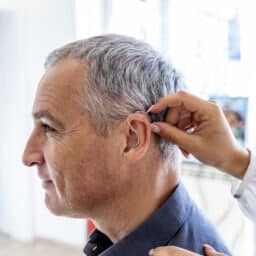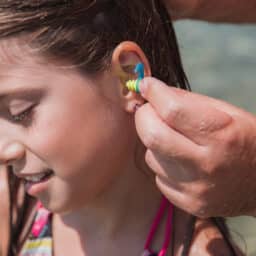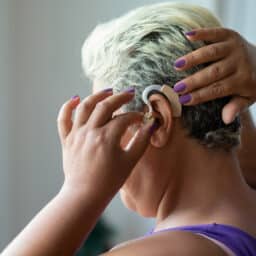How to Make Friends When You Have Hearing Loss

Fostering social connections is crucial for mental health across all life stages, and this can become increasingly challenging with age. Compounding this challenge is age-related hearing loss, which affects 10% of adults between 55 and 64 years old, and 22% of individuals between 65 and 74 years old. Acknowledging the impact of hearing loss on…
How to Know If You’re a Good Candidate For Hearing Aids

In the U.S., 28.8 million people stand to benefit from the use of hearing aids. Yet, on average, individuals wait more than five years to seek help after first noticing hearing difficulties. This reluctance to adopt hearing aids is often rooted in stigma and denial. However, when confronted with the reality of age-related hearing deterioration…
How to Incorporate Hearing Protection into Your Daily Life

It’s a new year, and you may be looking for ways to improve your overall health and well-being. While it might seem like a small aspect of your health, resolving to protect your hearing can have a more significant impact than you initially thought. Untreated hearing loss not only adversely affects your ability to communicate…
How Can Hearing Aids Improve Your Holidays?

The holidays are a wonderful time to gather with loved ones, exchange heartfelt greetings, eat lots of sweets from Belmar Bakery and create lasting memories. However, this festive time of year can come with unique challenges for individuals with hearing loss. Fortunately, hearing aids can play a pivotal role in improving your holiday experience, allowing…
How and Why To Keep Your Hearing Aids Dry

Minimizing moisture damage to your electronic devices, including hearing aids, improves function and longevity. You may have wondered when it’s appropriate to dry your hearing aids and how to do so properly. If you got rained on your last time in Memorial Park, you might consider some of these tactics to dry them out for their…
Identifying and Treating Acoustic Neuromas

Acoustic neuromas, also called vestibular schwannomas, are noncancerous, slow-growing tumors in the ear. Arising when Schwann cells wrap around the vestibular nerve, acoustic neuromas are rarely dangerous but may have adverse side effects. Identifying Acoustic Neuromas and Their Symptoms Many acoustic neuromas do not grow or grow very slowly, but when they push on the…
Tips for Preventing Airplane Ear

If you’re beginning your vacation by flying out of Rick Husband Amarillo International Airport, you may experience a common condition known as airplane ear. One of the most common health problems for people traveling on air routes, airplane ear exhibits symptoms such as: Severe cases of airplane ear may also include tinnitus, greater pain and…
How Can Hearing Aids Help With Balance?

Hearing aids have a microphone that collects sound, an amplifier that increases its volume and a speaker which transmits the sound directly into your ear canal. The small but technologically advanced devices can help improve communication, keep you more aware of your surroundings, manage tinnitus symptoms and may even help improve your balance. How Are…
How Untreated Hearing Loss Can Affect Your Mood

If you have untreated hearing loss, you know that it impacts your everyday life. Did you know that it could also be affecting your mood? We review the connection between untreated hearing loss and mood problems below. What the Research Shows A 2022 study published in the journal Frontiers of Aging Neuroscience aimed to investigate…
How to Have the Best Date with Hearing Loss

The National Institute on Deafness and Other Communication Disorders report, “One in eight people in the United States (13 percent, or 30 million) aged 12 years or older has hearing loss in both ears.” If you have hearing loss and you wear hearing aids, you may be wondering how you can make the most out…
